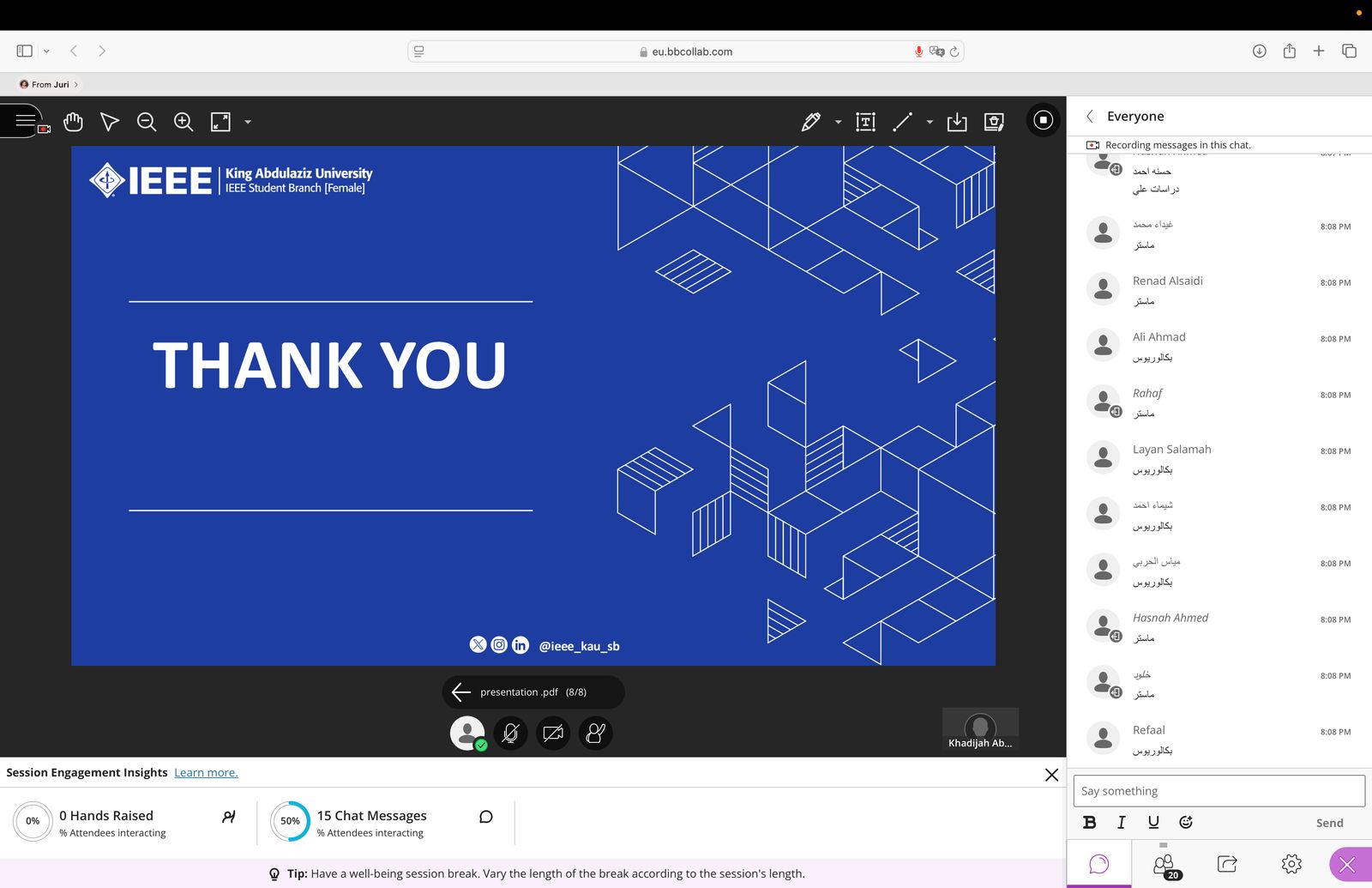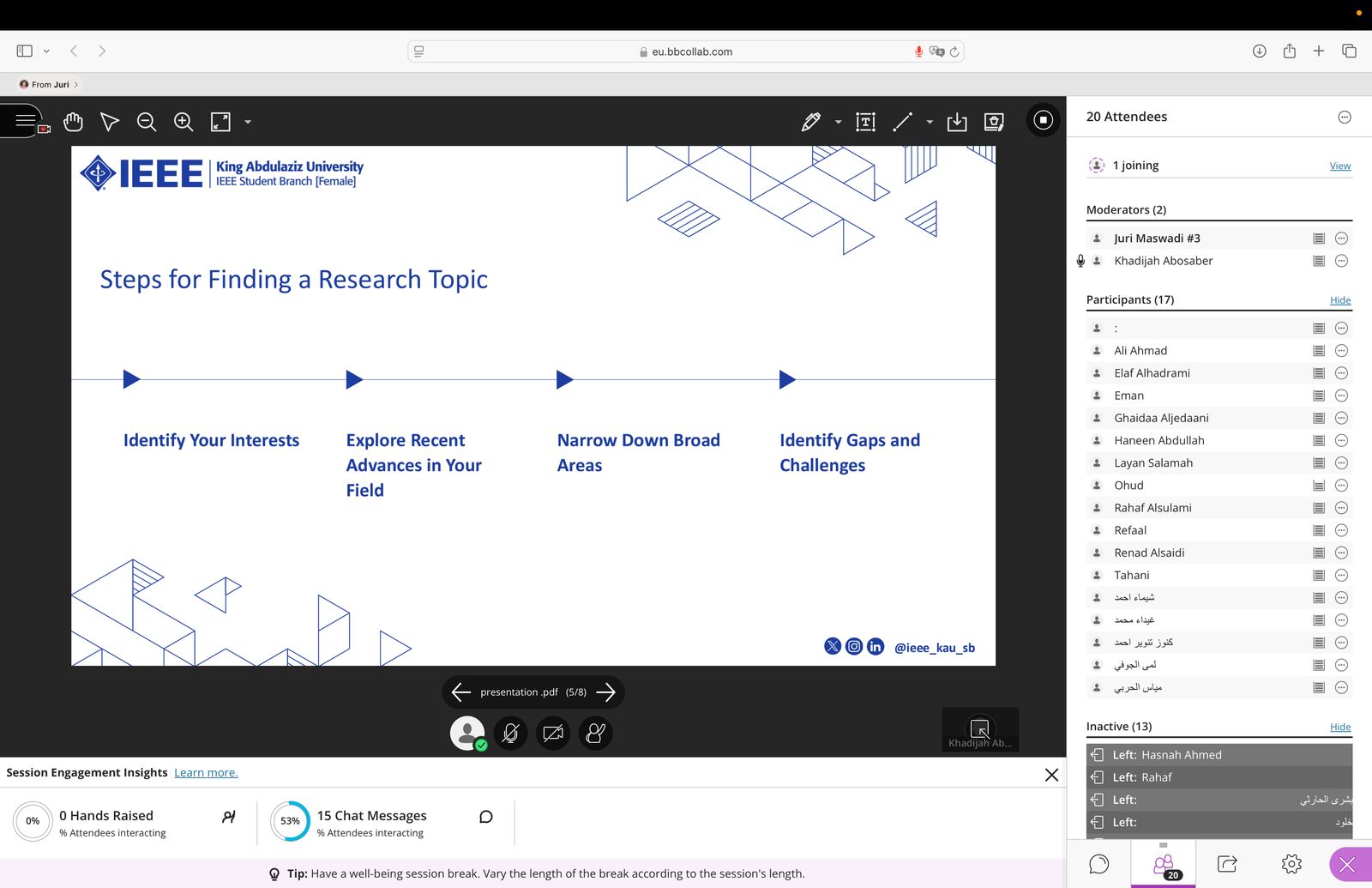Khadijah Abu Sabir is a passionate Computer Science master’s student at King Abdulaziz University. With a strong interest in research methodologies and problem-solving, she is dedicated to helping fellow students and researchers navigate the process of selecting meaningful and impactful research topics. Her expertise lies in guiding participants to overcome common challenges and providing practical strategies for successful topic selection.
How to Find a Research Topic– Workshop
How to Find a Research Topic – A Step-by-Step Guide for Researchers
This workshop, led by Khadijah Abu Sabir, a dedicated Computer Science master’s student at King Abdulaziz University, aims to help participants navigate the crucial process of finding a suitable research topic. It will provide strategies to overcome common challenges, outline steps for topic selection, and highlight mistakes to avoid. The session is designed to guide researchers, students, and academics toward selecting topics that align with their interests and contribute meaningfully to their field.
Date and Time
Location
Hosts
Registration
Speakers
Khadijah Abu Sabir
Topic:
How to Find a Research Topic
Biography:
Agenda
-
Why is Finding the Right Research Topic Important?
Understanding the significance of choosing a topic that aligns with your academic and professional goals. -
Common Challenges in Finding the Right Topic
Discussing obstacles researchers often face, including lack of direction, information overload, and narrowing down broad ideas. -
Steps to Choose the Right Topic
A step-by-step guide to identifying a research question, conducting background research, and ensuring topic relevance and originality. -
Common Mistakes to Avoid When Choosing a Topic
Highlighting frequent pitfalls, such as choosing overly broad or too narrow topics, neglecting available resources, or overlooking the relevance to current research trends.




 Add Event to Calendar
Add Event to Calendar